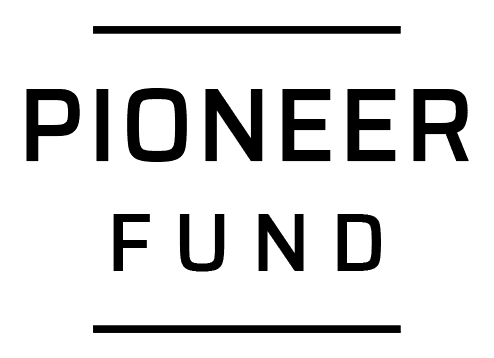Startup Spotlight: Quin

In this Spotlight, we connected with Cyndi Williams, founder and CEO of Quin, the platform designed to support people with diabetes and their 24x7 self-management needs. Quin builds complex rich models of personal behaviour, physiology and psychology to make tailored recommendations for its users. Cyndi explains how started the business with a cofounder who had been living with Type 1 diabetes for over 20 years and clued her into the relentless nature of constant self-management. Quin is driving the paradigm shift towards living well with diabetes, rather than just surviving it. Cyndi believes the future of healthcare lies in people having more knowledge about themselves & their own health.
Describe your company:
Cyndi Williams (CW): We are 100% focused on the 24x7 self-management needs of people with diabetes.
Starting with the fact that 99% of diabetes care is self care - done by the individual living with the condition, when they're away from their doctor and living their day-to-day life. That's a lifelong learning journey. People are making hundreds of decisions a day about things most of us just take for granted: Can I eat this now? Can I get in the car and drive? Can I get through this meeting without eating some sugar? etc. There's layer upon layer of uncertainty around every aspect of life: sleep, stress, menstruation, menopause, managing relationships, etc. Many things go wrong and there's a lot of ups and downs.
What we do is take data from diabetes devices and phones and build up complex rich models of personal behavior, physiology and psychology and use that to curate hyper-personalized education (e.g. how does this drug behave in my body?), support (picking people up when things go wrong and helping them stay motivated on the journey), and guidance (e.g. how much insulin should I take for this burger?).
We provide that education, support and guidance based on each individual's personal past experiences and data (not general medical knowledge with some patient data around the edges). In a nutshell, we're all about empowering people with knowledge, confidence and better well-being to achieve better health outcomes.
How did you come up with the idea?
CW: I started the business with a cofounder (she has now gone on to do her PhD) who had been living with Type 1 diabetes for over 20 years. She clued me into the relentless nature of day-in-day-out self-management and the constant cognitive and psychological load of living with the condition.
All the diabetes tech out there was focused on only a very narrow slice of the day-to-day challenges (predicting blood glucose and taking medication) and we saw a huge opportunity to bring everything we knew from building consumer technology in retail, media and finance to take a much more holistic approach and totally overhaul diabetes self-management.
How did you turn your idea into a company?
CW: We're 7 years old now, and we've had lots of twists and turns and pivots in our journey. I like to say that Quin is actually three startups: the first two failed and the third one is actually working.
In the very early days, my cofounder and I spent our days in the British Library, coming up with product ideas and meeting with people with Type 1 diabetes to test them out. We realized early on that we were making a medical device so we also spent quite a bit of time reading and understanding the regulatory requirements and standards to work out our regulatory strategy. When we thought we had a good MVP concept, we started developing it, in parallel with developing our regulatory system.
Over the years we recruited hundreds of people with diabetes into our beta research programme and spent tens of thousands of hours co-creating more than 50 different releases of our product.
We landed on the core and novel product concept that's making us successful now about two years ago.
Our constant in-depth user research showed us that no matter how much decision support we provided in our product, the fatigue, anxiety, stress and depression felt by most of our users was majorly in the way of them achieving good outcomes.
In industry lingo it's called Diabetes Distress, and when we dug into it, we saw we we couldn't ignore it and there were many ways to start addressing it. That's what lead us to what we're doing now: using game narrative theory and novel storytelling approaches to curate hyper-personalized education, support and guidance and relieve Diabetes Distress - with the knock-on effect of people achieving meaningful improvements in their health outcomes.
We're seeing incredible results and it's now getting us a lot of attention as there's a paradigm shift happening in the care model toward an emphasis on living well with diabetes, as opposed to just surviving with it.
What have been some of the biggest challenges you've faced so far?
CW: Consumer-centered innovation is very difficult in the healthcare industry.
As a healthtech founder, everyone tells you to start with the business model and then work your way backward into the product. We didn't do that at Quin. We allowed ourselves to start with the consumer, asking questions like: what if the healthcare system didn't even exist? What does this *person* (not patient) actually need?
That led us down a very different path than every other diabetes tech company. Different is good if it works (Quin does), but different is also very hard.
We've landed on a co-created consumer product based entirely on data, algorithms and a crack user experience that provides hyper-personalized education, support and guidance that empowers people to better manage *on their own*.
In a world where everyone thinks the solution is virtual care, backed by human doctors and coaches, that can be an uncomfortable place to be :) Most of our biggest challenges right now are the result of having gone against the flow. How do you get your product adopted and paid for by a system that isn't even aware that the patient problems you're solving exist?
But on top of all that, the biggest challenge of all is diabetes. It's a massively complex condition that affects everyone differently. How to create a product that enough people will actually use? At least part of the answer to that lies in data and personalization.
How are you using health data?
CW: We ingest a lot of different types of data: blood sugar, activity data, medication, food, menstruation, etc. and we've got research ongoing for many additional data inputs.
Most of these signals come from other devices or apps. There's no shortage of data these days, particularly in diabetes. The challenge - and what we're focused on at Quin - is how to make it actionable and useful in day-to-day life for the person who is making hundreds of decisions a day running their own endocrine system.
Our world is all about hyper-personalized education, support and guidance. Understanding who you are, and where you are in your life and your diabetes life. Providing projections of what's likely to happen in the next 5 hours, based upon what's happened for you in the past. Helping you surface relevant personal patterns to make treatment decisions in the moment and plan concrete steps forward in the face of uncertainty. Helping you grow your knowledge and skills by taking you on a personalized learning journey. Giving you bite-sized personalized relevant bits of education in a moment that it could be useful to you. Explaining the why - not just the how - and reinforcing your learning with feasible real-world practice. Giving you a feeling of being supported by knowing what's going on with you, and sharing relevant insights to intrinsically motivate you to keep going.
What do you think are the current gaps in health data today?
CW: We need to get the plumbing sorted, so we can get on to making the data actionable and useful, particularly for patients.
Privacy, security, ownership - these are all problems that can and should be solved by specialist health data platforms, so the rest of the industry can get on with using the data to invent personalized experiences that actually help people live better.
As someone who worked in the consumer tech sector for years before moving into health tech, I can confidently say we have not even begun to make use of the data-driven personalization techniques that have been so critical to creating sticky products in gaming and media. This is a huge gap, and we have plenty of prior art to look at to close it.
What do you think is the future of this space?
CW: So much of the future of healthcare, particularly in the case of chronic conditions, will be about people having more knowledge about themselves, their bodily systems, their physical and mental health, etc.
Proven techniques from game narrative theory, education theory, character evolution theory, etc. - powered by scads of health data - will play a huge role in developing products that grow personal knowledge and understanding and empower people to look after themselves better.
In a world where doctors are in increasingly short supply and healthcare costs are skyrocketing, this has to be the future.
Anything else we should write about?
CW: Too much of today's virtual care is about digitizing analog care models that are outdated, expensive and ineffective, e.g. 80% of people with diabetes don't achieve the recommended healthcare targets, and telehealth isn't going to move the needle far enough.
The next generation of health tech has an opportunity - and I would say a responsibility - to totally rethink healthcare with the patient at the center, and THEN build the technology needed to support it.





